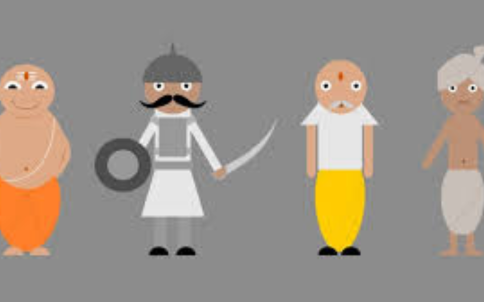Rajendra Singh Baisthakur
Hindu religion advises people to follow Swadharma (One’s own duty). That is to say one has to follow his Varna and his Asrama. Hindu Sastras mention four Varnas and four Asrams (which are not related to caste). The four Varnas viz Brahmana, Kshatriya, Vaisya and Sudra are based on the qualities and professions of men (Guna, Karma vibhagaha). The genes a man inherits and the profession he practices have a bearing on his personality and behaviour. Brahmins are supposed to acquire knowledge and guide society. Kshatriyas have to protect people and implement justice. Vaisyas practice cultivation and dairy farming. All other artisans of different professions are Sudras. Nobody had any problem with the system as no one was considered superior or inferior.
Also read: Guru for humanity
Manu, who prepared a code of conduct (dharma/ laws), described that Brahmins originated from the Head, Kshatriyas from the shoulders, Vysyas from the thighs and Sudras from the feet of god. Those who did not understand the symbolic significance of the body parts started feeling superior or inferior.
Also read: As we sow, so we reap
Today anyone can practice any profession. That is to say we have left behind the Varna system. Similarly the four Asramas (stages) of life viz, Bramhacharya (period of Study), Gruhastha (being a householder), Vanaprastha (being away from his possessions and his people except his spouse) and Sanyasa (total renunciation) are not followed by anybody.
Also read: Bhoota daya
So, Swadharma (one’s duty) which includes Varna and Asrama is not in vogue in present Democratic society. But Caste, which had been a group of people following the same profession, has become a divider of Hindu society into many fragments though today persons of every caste are in every profession. That is to say Varna, Asrama, Caste have no meaning today. Hinduism allows this progressive reform in itself but politicians are perpetuating caste to create vote banks to grab power.
Also read: Itihasa means this happened




